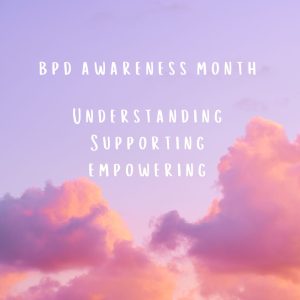Living with Borderline Personality Disorder (BPD) can be incredibly challenging, affecting all aspects of daily life.
From relationships to work and self-care, individuals with BPD often face significant obstacles in their quest for stability and well-being.
However, there is hope.
Dialectical Behaviour Therapy (DBT) has proven to be a highly effective treatment option for those struggling with BPD.
In this blog post, we will dive into the impact of BPD on daily life and explore how DBT can help individuals find stability and balance and, ultimately, reclaim their lives.
What is Borderline Personality Disorder (BPD)?
Borderline Personality Disorder (BPD) is no easy feat. It is a complex mental health condition that affects how individuals think, feel, and interact with the world around them.
BPD is characterized by intense emotional experiences, an unstable sense of self, impulsive behaviour, and difficulty regulating emotions.
What are the BPD Effects on Daily Life?
Here are some everyday struggles with Borderline Personality Disorder:
1. Interpersonal Relationships: BPD often leads to tumultuous relationships marked by intense emotions and a tendency to idealize or devalue others. Maintaining stable and healthy relationships can be challenging.
2. Emotional Instability: Rapid and intense mood swings, including anger, anxiety, and depression, can disrupt daily life. Emotional reactions may be disproportionate to the situation, affecting decision-making and interpersonal interactions.
3. Impulsivity: Impulsive behaviours, such as reckless driving, substance abuse, binge eating, or overspending, can have immediate and long-term consequences, affecting financial stability, health, and relationships.
4. Self-Identity Issues: Individuals with BPD may struggle with a poorly defined sense of self. Changes in self-identity, values, and goals can impact decision-making and life direction.
5. Fear of Abandonment: The fear of being abandoned or rejected can lead to intense efforts to avoid real or perceived abandonment, potentially influencing decisions, behaviours, and emotional well-being.
6. Self-Harming Behaviours: Some individuals with BPD engage in self-harming behaviours as a way to cope with emotional pain.
7. Difficulty Trusting Others: Suspicion and fear of others’ intentions can make it challenging to trust and connect with people, impacting social interactions and the development of meaningful relationships.
8. Work and Academic Challenges: The emotional and interpersonal difficulties associated with BPD can affect performance at work or school.
Issues such as impulsivity, mood swings, and difficulty with authority figures may contribute to challenges in these environments.
How Does DBT Offer Coping Strategies for BPD Individuals?
Dialectical Behaviour Therapy (DBT) has proven to be highly effective in helping individuals with BPD manage their symptoms and improve their overall quality of life.
Here are ways in which DBT can improve life:
1. Emotion Regulation: Patients can work on improving emotional well-being with DBT. This type of therapy teaches individuals with BPD skills to identify and regulate intense emotions. This includes learning healthy ways to cope with distress, tolerate negative emotions, and prevent impulsive reactions.
2. Mindfulness: Mindfulness is a key component of DBT that helps individuals stay present in the moment without judgment. By cultivating mindfulness, individuals with BPD can increase their awareness of emotions and thoughts, allowing for more intentional responses.
3. Interpersonal Effectiveness: DBT focuses on improving communication and relationship skills. Individuals learn how to express their needs, set boundaries, and navigate conflicts assertively yet respectfully.
4. Self-Identity and Values Clarification: DBT helps individuals explore and define their sense of self and values. This can contribute to a more stable self-identity and a sense of purpose, reducing the impact of identity disturbances common in BPD.
5. Reducing Self-Harming Behaviours: By addressing the underlying emotional pain and teaching alternative coping mechanisms, DBT aims to decrease self-harming behaviours commonly associated with BPD.
Online DBT for Borderline Personality Disorder at Dialectical Living
If you are dealing with BPD, you can get the help you need in the comfort of your home with Online DBT from Dialectical Living.
Our experienced and compassionate therapists offer DBT therapy online to help you lessen the BPD effects on your daily life.
Book an appointment now.





